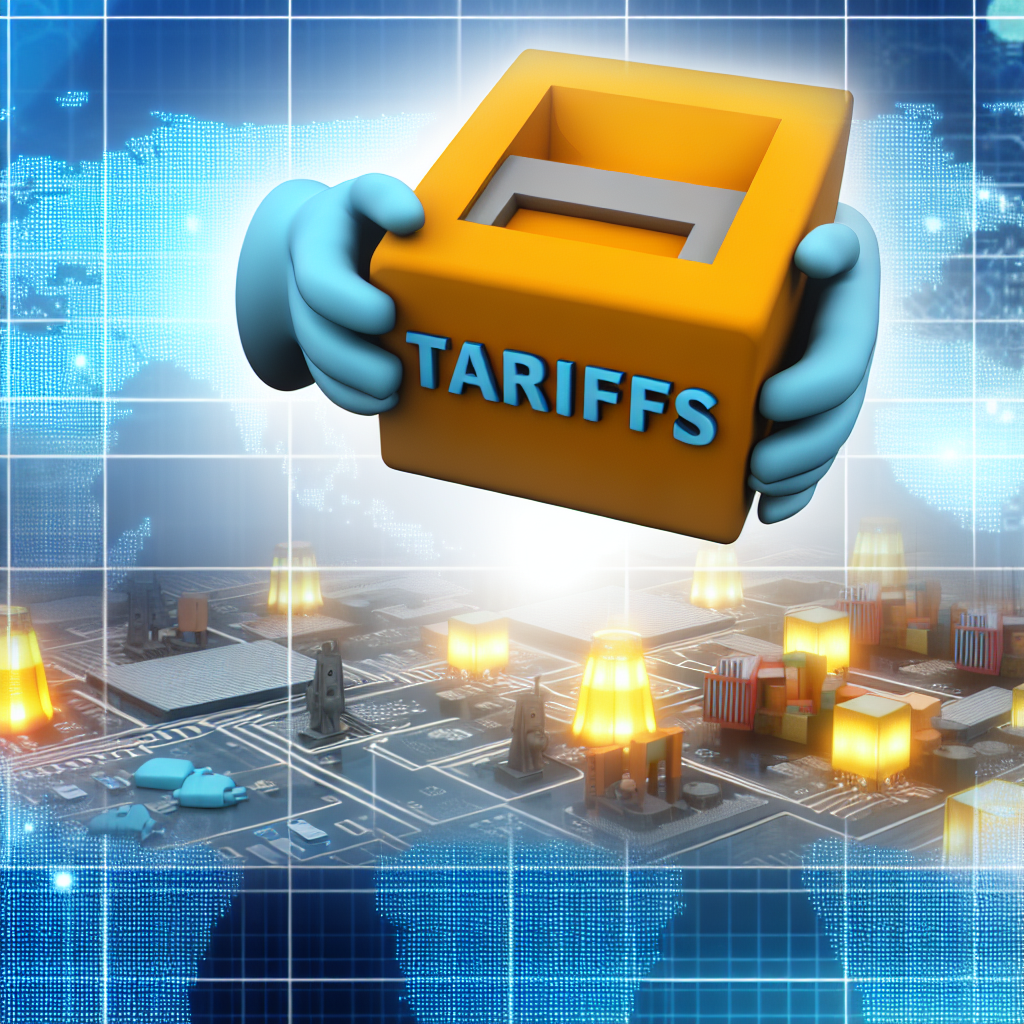Taiwan’s Tech Sector: Under Pressure from Tariffs
Taiwan has long been recognized as a global powerhouse in the technology industry, particularly in semiconductor manufacturing and electronics. However, recent geopolitical tensions and the imposition of tariffs, especially between the United States and China, have placed significant pressure on Taiwan’s tech sector. This article explores the multifaceted impact of tariffs on Taiwan’s technology industry, the challenges faced by key players, and the strategies being employed to navigate this complex landscape.
The Backbone of Global Tech: Taiwan’s Semiconductor Industry
Taiwan is home to some of the world’s most critical technology companies, with Taiwan Semiconductor Manufacturing Company (TSMC) leading the charge. TSMC alone accounts for over 50% of the global semiconductor foundry market, making it indispensable to industries ranging from consumer electronics to automotive manufacturing.
However, the escalating trade tensions between the U.S. and China have introduced new tariffs and export controls that disrupt supply chains and increase costs. For example, the U.S. government’s restrictions on semiconductor technology exports to China have forced Taiwanese companies to reassess their business strategies and client portfolios.
Tariffs and Trade Barriers: A Double-Edged Sword
The imposition of tariffs affects Taiwan’s tech sector in several ways:
- Increased Production Costs: Tariffs on raw materials and components imported from China or the U.S. raise manufacturing expenses.
- Supply Chain Disruptions: Complex supply chains that span multiple countries face delays and uncertainties due to changing trade policies.
- Market Access Challenges: Tariffs can limit Taiwanese companies’ ability to sell products competitively in key markets, particularly China and the U.S.
- Investment Hesitation: Uncertainty around tariffs discourages foreign direct investment and slows expansion plans.
For instance, in 2018, the U.S. imposed tariffs on $250 billion worth of Chinese goods, which indirectly affected Taiwanese manufacturers reliant on Chinese components. This ripple effect forced companies like Foxconn, a major Apple supplier, to diversify their manufacturing bases to countries like Vietnam and India.
Case Study: TSMC’s Strategic Response
TSMC’s response to tariff pressures highlights the adaptability of Taiwan’s tech sector. To mitigate risks, TSMC has:
- Invested heavily in expanding manufacturing facilities outside Taiwan, including a $12 billion plant in Arizona, USA, to serve American customers and reduce exposure to tariffs.
- Enhanced R&D efforts to develop cutting-edge chip technologies that maintain competitive advantage despite cost pressures.
- Strengthened relationships with global clients to secure long-term contracts and reduce dependency on any single market.
These moves not only help TSMC navigate tariff-related challenges but also contribute to reshaping the global semiconductor supply chain.
Broader Implications for Taiwan’s Tech Ecosystem
Beyond individual companies, tariffs have broader implications for Taiwan’s tech ecosystem:
- Innovation Pressure: Increased costs and market uncertainties push companies to innovate faster to maintain margins.
- Talent Retention: Economic pressures may affect the ability to attract and retain top engineering talent.
- Government Support: The Taiwanese government has ramped up support through subsidies and incentives to help companies weather tariff impacts.
According to Taiwan’s Ministry of Economic Affairs, the tech sector’s export growth slowed to 3.5% in 2023, down from an average of 7% in previous years, reflecting the tariff-induced headwinds.
Looking Ahead: Navigating an Uncertain Future
While tariffs present significant challenges, Taiwan’s tech sector remains resilient. Companies are diversifying supply chains, investing in new markets, and leveraging government support to sustain growth. However, the ongoing geopolitical tensions mean that uncertainty will likely persist.
Key strategies for Taiwan’s tech sector moving forward include:
- Expanding manufacturing footprints globally to reduce tariff exposure.
- Accelerating innovation in emerging technologies such as AI chips and 5G components.
- Strengthening partnerships with allies to create more stable trade environments.
Conclusion
Taiwan’s technology sector, a cornerstone of the global electronics and semiconductor industries, is undeniably under pressure from tariffs and trade tensions. These challenges have increased costs, disrupted supply chains, and introduced market uncertainties. However, through strategic investments, diversification, and innovation, Taiwanese companies like TSMC and Foxconn are adapting to the evolving landscape.
While tariffs have created obstacles, they have also accelerated Taiwan’s push toward greater self-reliance and global expansion. The sector’s ability to navigate these pressures will be crucial not only for Taiwan’s economy but also for the stability of the global technology supply chain in the years to come.





